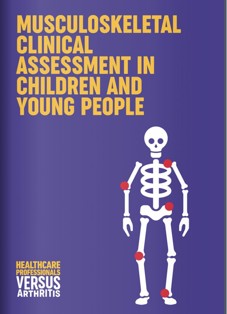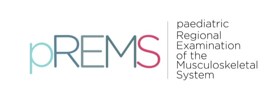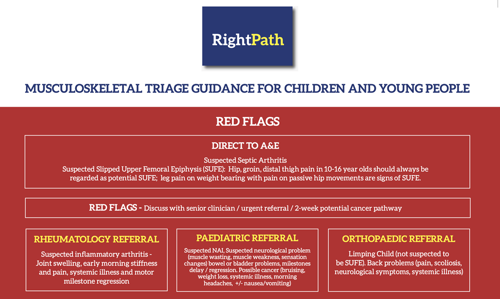Examination
There are evidence based tools to support clinical practice and assessment of children with musculoskeletal concerns.
pGALS (paediatric Gait, Arms, Legs, Spine) is simple approach to musculoskeletal assessment.
A free guide to pGALS and pREMS as an e-book from Versus Arthritis - this is helpful for the teaching and learning of musculoskeletal clinical assessment.

- The pGALS assessment: a publication to describe pGALS.
- pGALS graphic animation
- pGALS checklist (text) and pGALS components (graphic).
- pGALS Translations (languages) - currently more than 20 languages are available !
- pGALS 'Record your Findings' (proforma).
- pGALS abnormalities: some examples.
- pGALS practical tips for clinical practice and teaching.
- pGALS App (with many language translations) Google Play or Apple.
- V-pGALS - a modified version of pGALS for use in Telehealth / remote consultations - this section also includes link to a live demonstration of V-pGALS.

- Practical tips for clinical examination in Telehealth / remote consultations.
- Recording clinical consultations (with joint count / pain scales / clinical assessment).
- pREMS - 'Record your Findings' proforma.

It is noteworthy that pGALS, V-pGALS and pGALSplus tools are assessment aids to prompt further investigations or referrals. Other tools are there to support collection of consistent and important information to aid clinical decision making, such as pREMS or GALLOP (Gait and Lower Limb Observation of Paediatrics).
Further information about GALLOP is available and includes the GALLOP recording proforma.
pGALSplus builds on pGALS and aims to help clinicians to determine if a child with a musculoskeletal problem will need specialist referral or not and if so whether to rheumatology, orthopaedics or neurology/neurodisability. A Model of Care involving triage is called RightPath and further information is available and includes the triage guide:
https://www.rightpath.solutions



